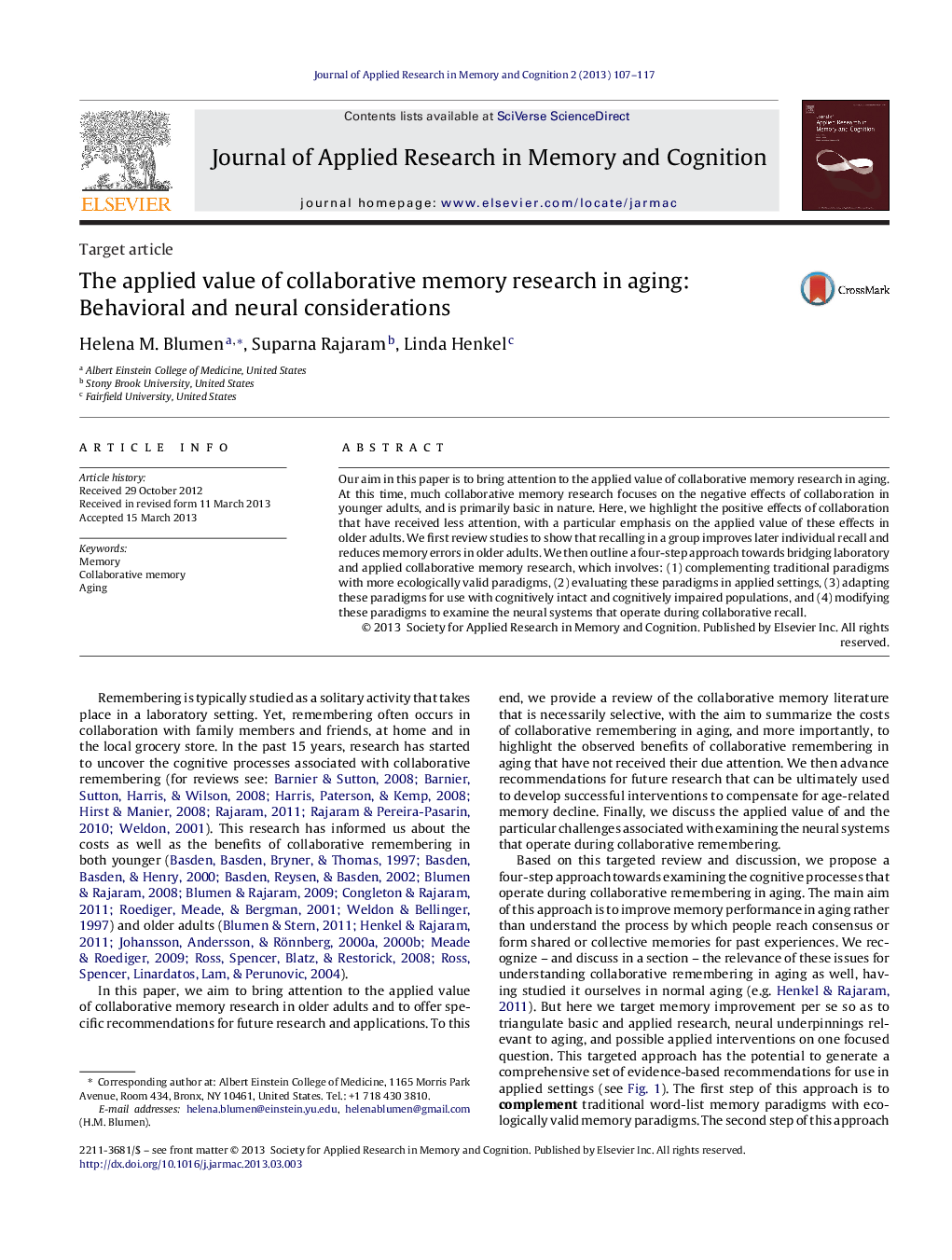| Article ID | Journal | Published Year | Pages | File Type |
|---|---|---|---|---|
| 881643 | Journal of Applied Research in Memory and Cognition | 2013 | 11 Pages |
•A four-step approach towards using collaboration to compensate for age-related memory decline is proposed.•Step 1: Complement standard collaborative memory paradigms with ecologically valid paradigms.•Step 2: Evaluate these paradigms in laboratory and applied settings.•Step 3: Adapt these paradigms for use with cognitively intact and cognitively impaired populations.•Step 4: Modify these paradigms to examine the neural systems that operate during collaboration.
Our aim in this paper is to bring attention to the applied value of collaborative memory research in aging. At this time, much collaborative memory research focuses on the negative effects of collaboration in younger adults, and is primarily basic in nature. Here, we highlight the positive effects of collaboration that have received less attention, with a particular emphasis on the applied value of these effects in older adults. We first review studies to show that recalling in a group improves later individual recall and reduces memory errors in older adults. We then outline a four-step approach towards bridging laboratory and applied collaborative memory research, which involves: (1) complementing traditional paradigms with more ecologically valid paradigms, (2) evaluating these paradigms in applied settings, (3) adapting these paradigms for use with cognitively intact and cognitively impaired populations, and (4) modifying these paradigms to examine the neural systems that operate during collaborative recall.
